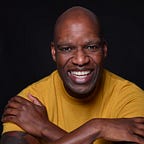The Best Music Duos of All Time, Ranked from 16 to 1
If too many cooks spoil the broth, two can make it just right.
10 min readNov 30, 2020
“It takes two to make a thing go right. It takes two to make it outta sight.”
That’s what the rap duo Rob Base and DJ E-Z Rock declared on their 1999 classic “It Takes Two.” The female trio Seduction seconded that notion in the title and chorus…
